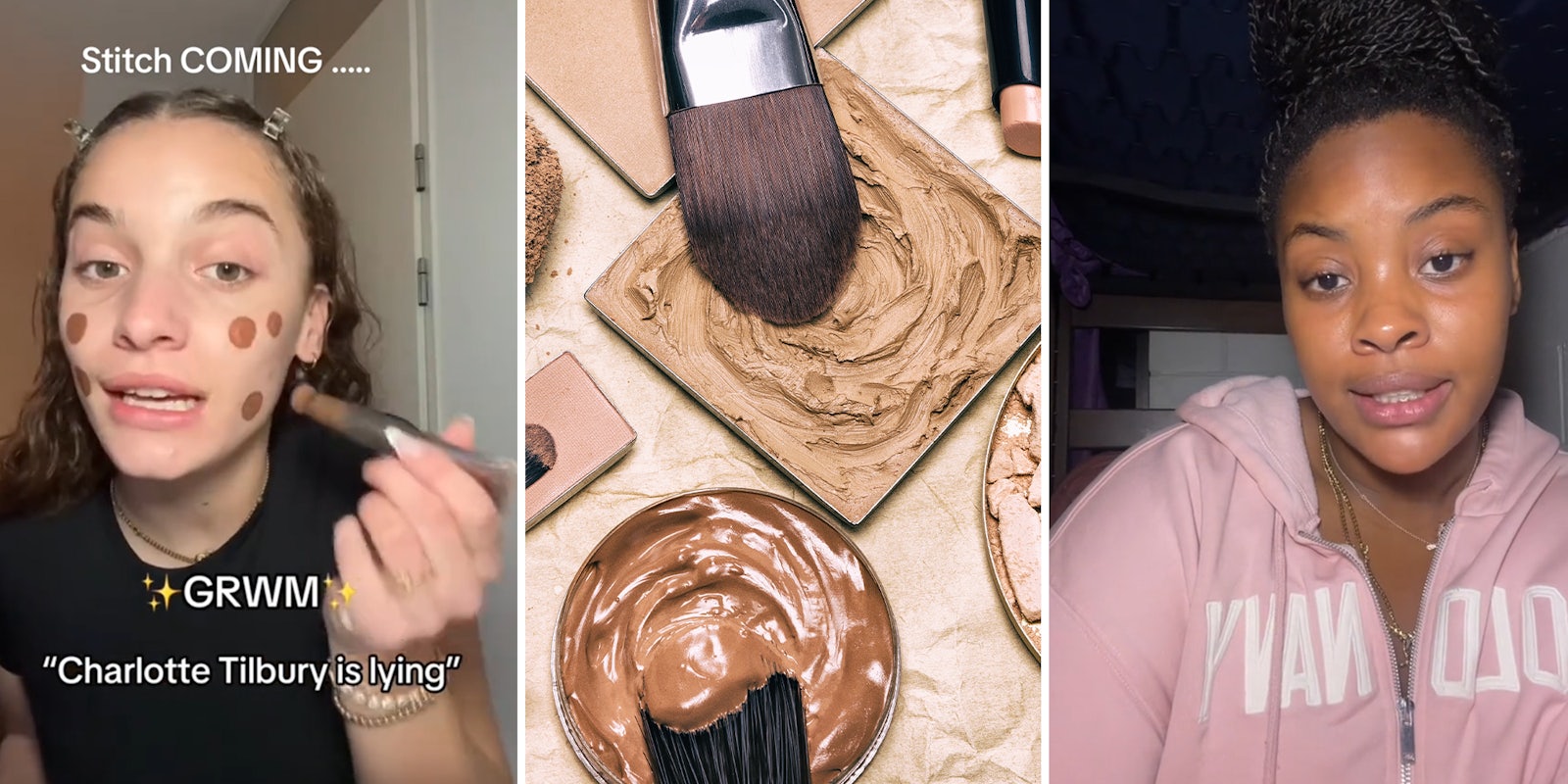White women are getting called out for buying makeup made specifically for Black and brown skin.
Black and brown people, especially those with darker complexions, have advocated for makeup that actually matches their skin for decades. It’s long been the case that you’ll see a wide range of foundations and concealers in varying beige tones and light tan colors, but when you make it to the section for the more deeply melanated, suddenly, the shade range goes from dozens of options to just a handful.
After the massive success Fenty Beauty had with makeup shades that reflect customers’ skin range, some other brands followed suit and began releasing more makeup for Black and brown people.
However, these products can still be difficult to find in stock in stores, especially when people outside of the target demographic start buying them up to cosplay a skin tone that isn’t theirs.
A case in point is one fair-skinned TikTok creator who was using a foundation that could have her border on blackface, depending on how heavily it’s applied.
In a viral TikTok, Kamia (@kamiaaaliyahh) called out creator Selma (@selma) for her video doing exactly that.
The stitch starts with Selma applying several dots of a deep brown concealer to her fair skin. Kamia then pops in with her thoughts.
She explains that when she worked at makeup stores as a beauty advisor, it “never failed” that she saw at least one woman each shift come in and ask for a foundation shade that was “20 times darker than her.”
“Ma’am, that doesn’t match your skin. That’s not even your—That’s darker than your contour shade. I would never match you with that,” Kamia would tell them.
But they’d still buy the too-dark product, fully believing that it matched them, Kamia says.
“It didn’t even cross their minds that POC women finding this, especially Black women finding their shared in store is so hard. They just didn’t care,” Kamia says.
Selma’s original video is unavailable, as it seems she’s already taken it down, possibly because of this stitch or maybe for a completely unrelated reason.
She does, however, have several other videos using these dark shades just to then cover it up with a foundation that matches her skin. It seems she’s doing this for views, knowing that it’ll stir up backlash and get clicks since one of these very videos is titled, “The perfect foundation for my skin.”
Kamia’s video has more than a million views and nearly a thousand comments. People have thoughts.
“They know it’s not for them, they just don’t want us to have anything for ourselves,” a top comment read.
“I promise u they don’t care they tell bipoc women to cry abt it and order it online,” a person said.
“It really annoys me that we can’t find our shades in stock because they over consume all of it,” another added.
@kamiaaaliyahh #stitch with @Selma ♬ original sound – kamiaaaliyah
In an email to the Daily Dot, Kamia said that she’s passionate about this topic after her years of experience in the industry.
“After 3-4 years working in the makeup industry, I see the colorism, racism, and discrimination that Black people face in places that are meant to make people feel more beautiful,” she wrote. “For Black women, especially dark-skinned Black women, if brands do carry their shade range, specifically foundations, they are quickly swiped up by white women who use it for the wrong purposes. This leaves Black women with no real options, especially in mass-production makeup.”
Kamia added that she wanted her video to point out how these actions affect Black women.
“I made a video to highlight and have a voice for Black women,” she said. “I go to a university that was founded by a black woman who didn’t fall in the adversity but actually spoke up about what she believed in, and I was doing just that, and I will always continue to do that.”
The Daily Dot reached out to Selma for comment via email.



